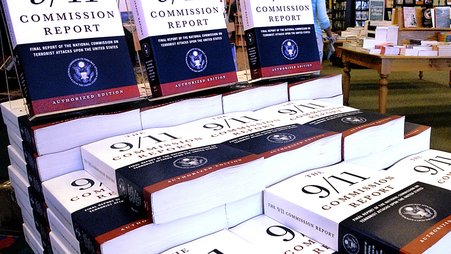Government secrecy functions as a control mechanism, and one that prevents the public from basic self-governance. That was the key takeaway from a 9/11 anniversary interview by Truthout with Lauren Harper, the first Daniel Ellsberg chair on government secrecy at Freedom of the Press Foundation (FPF).
On whistleblowers, Harper noted their fundamental importance but stressed that their protections “are not as robust as they should be, and these individuals should not face — or be expected to carry — the burden of fixing a system-wide crisis.”
She also highlighted the need for ongoing reporting on entrenched government secrecy. “People in the intelligence community and elsewhere work tirelessly their entire careers to keep information secret,” Harper explained. “Occasional reporting on specific examples of excessive secrecy is not enough to challenge that systemic tide.”



